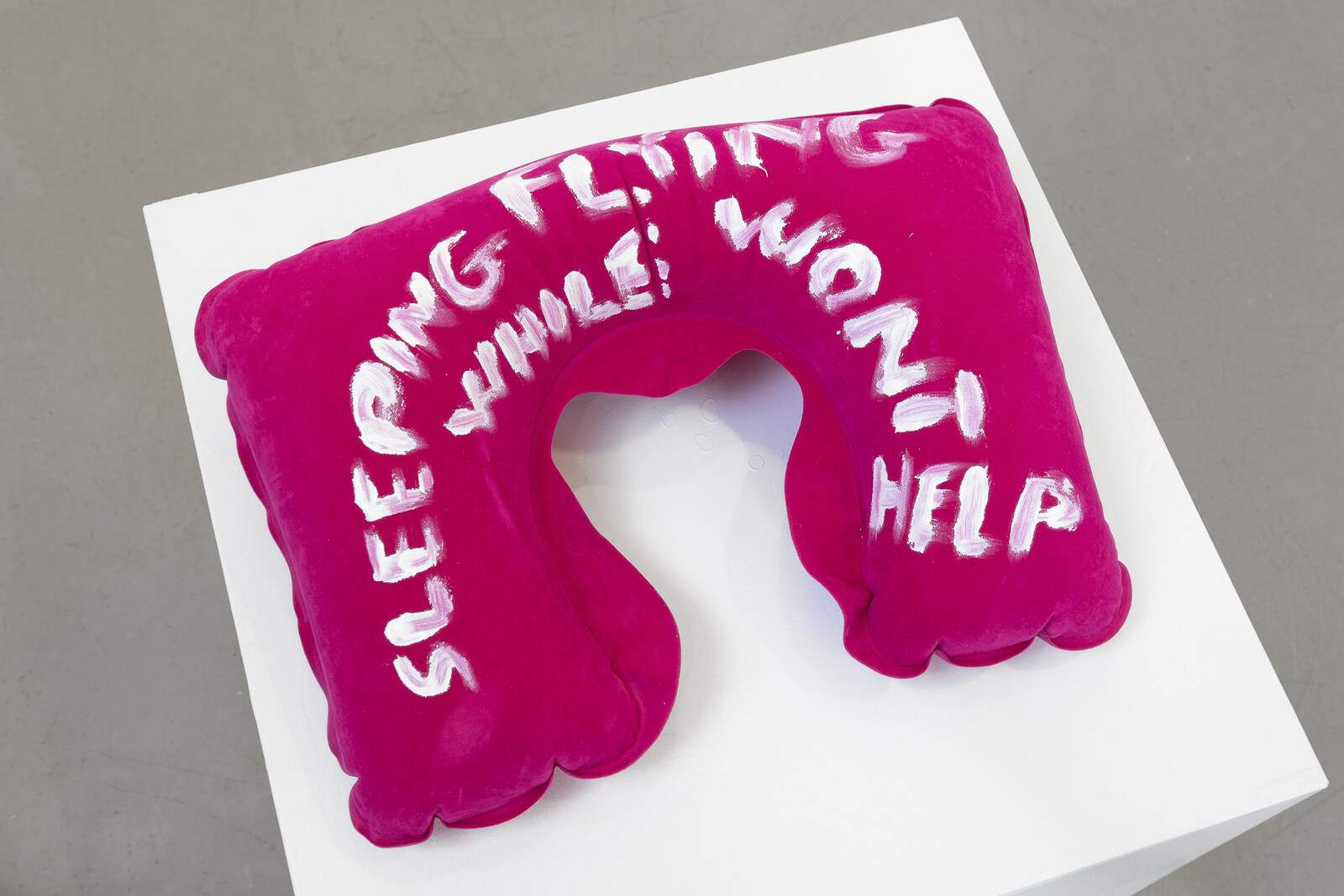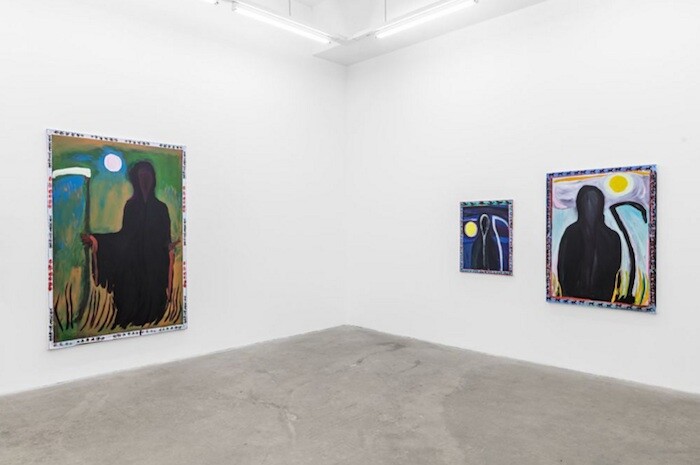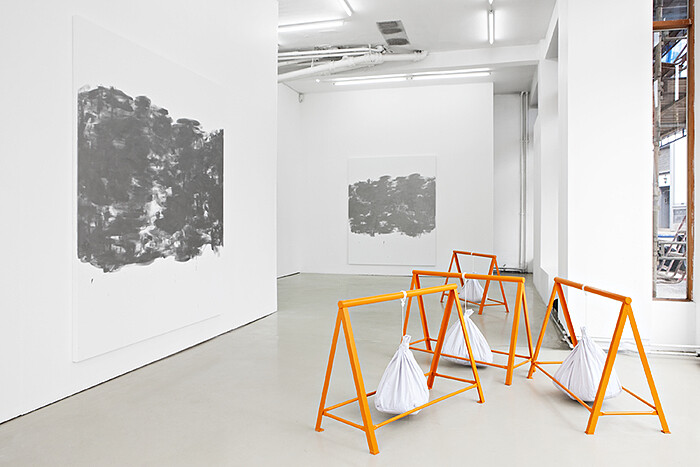Categories
Subjects
Authors
Artists
Venues
Locations
Calendar
Filter
Done
September 26, 2019 – Review
Oslo Roundup
Orit Gat

The other day I learned the word flygskam (Swedish for flight shame), which feels like a necessary term for living today. I wrote and deleted several versions of this introduction, which all revolved around the unanswerable question of how to account for travel today, when it feels like a professional necessity, but also nonessential when the knowledge gained is read against the environmental harm that travel propagates. I found myself shamefully wondering if I went to Oslo to learn what I already knew.
To press this, I’ll start with artists whose work I’ve seen numerous times. At Kunstnernes Hus, Ed Atkins is showing as part of Silver Series, a retrospective of an artist’s videos in the institution’s cinema. Only Atkins rethought the format and instead of a screening series opted to make a new work collaged from footage taken from his old videos. Death Mask 5 (2019) combines images from over a dozen of his earlier works, including his CGI alter ego from Ribbons (2014), the haunting empty bedroom from Hisser (2015), and the boy playing a piano from Old Food (2017). It took some googling to remember the narratives of the original videos, and which figure came from where, …
April 14, 2017 – Review
Josh Smith’s “You Walk on Ahead, Go as Fast as You Want. I’ll Follow Along Slowly. I Know the Road Well.”
Kjetil Røed

The visitor to Josh Smith’s show at STANDARD (OSLO) is faced with 11 Grim Reapers painted in oil on canvas, all of them equipped with the customary black robe and scythe. Smith’s angels of death are not solitary, otherworldly figures, but a motley crew rendered in a seemingly slapdash manner, like the paintings you come across in flea-markets and thrift shops. The kitschy feel of these paintings recalls one reviewer’s description of Smith’s recent work as “Edvard-Munch-goes-to-the-Bahamas,” but here the cardboard sunsets are relocated to the Northern Hemisphere. The most Munch-like of these works—including Time for Yourself and Easy on the Being (all works 2017)—are grouped together, but the majority are presented in relative isolation on the gallery’s white walls.
Gone are the artist’s “signature paintings” with the words “Josh Smith” scrawled all over them. Has the artist forgotten his former conceptual strictness? The wilful amateurism here anchors the paintings in the world of post-expressionistic outsider art, but Smith’s eccentricities seem more focused than most. He played with our expectations when using his own name as a motive and template—emptying the canvas of painterly authenticity and authority. In these paintings he achieves something similar with the presentation of death. The result …
September 30, 2011 – Review
Gardar Eide Einarsson’s “Discourses, Institutions, Buildings, Laws, Police Measures, Philosophical Propositions, and so on”
Kjetil Røed

Gardar Eide Einarsson has a way of working which is both playful and disparaging. His recent show at STANDARD (OSLO) is no exception. “Discourses, Institutions, Buildings, Laws, Police Measures, Philosophical Propositions, and so on” consists of three mock-modernist paintings, an appropriated photograph, and five readymades. Four of the readymades are Japanese traffic barriers and the last one a set of pull-up bars (used for working out in prison). But painting too is appropriated as a readymade here, not for reflecting upon painting itself, but rather for the theatrics surrounding it. One could say that Einarsson treats painting as an art historical prop to reflect on how power is materialized in form within the social space. What is most interesting about Einarsson’s work is not the work itself, but rather the effects produced when individual works are played out against one another, as unsettled antagonists within the discourse of art itself. But one question remains: do these objects serve as tools for thinking critically about art?
When Einarsson appropriates fragments of material culture, be it fragments from federal prisons or Japanese traffic jams, he often pairs them with the aesthetic codes of Ad Reinhardt, Barnett Newman, Jackson Pollock, etc. While this socio-cultural …